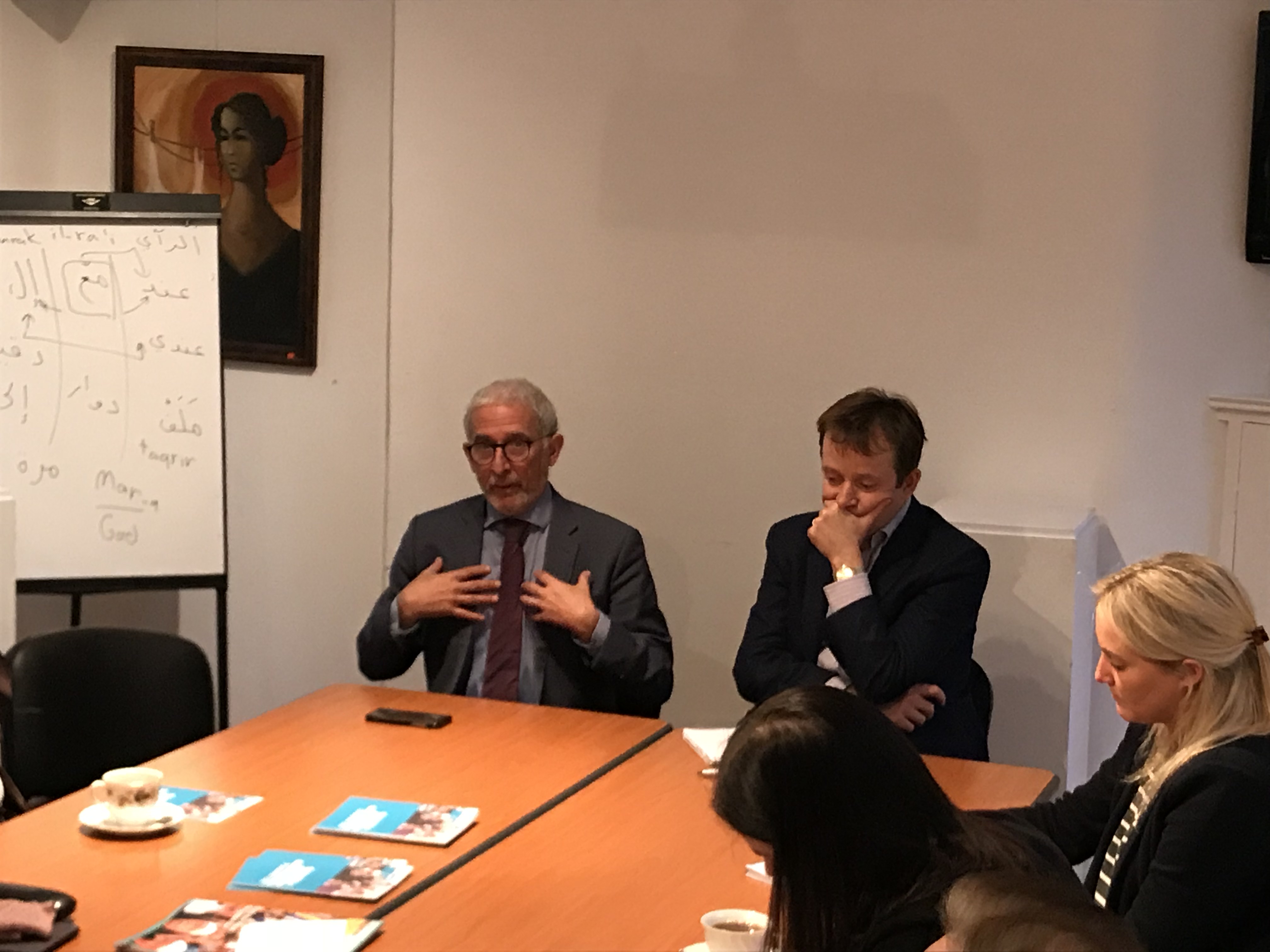Taking Stock: Jerusalem one year after the US embassy announcement: Caabu briefing with Daniel Seidemann
Daniel Seidemann is an Israeli attorney specialising in Israeli-Palestinian relations in Jerusalem. He is the founder of Terrestrial Jerusalem, an NGO that works towards a resolution to the question of Jerusalem that is consistent with a two-state solution.
In July 2017, Daniel Seidemann briefed Caabu on the current state of Jerusalem, fifty years after the city’s unification. Over a year later, on 22 November 2018, he returned, to consider the consequences of the Trump administration’s announcement of the US Embassy’s move from Tel Aviv to Jerusalem. Trump bucked Seidemann’s prediction, that no American president would ever move the embassy. But what of his prediction that doing so would immediately disqualify the US as a deal broker?
“We are deep in the unknowable,” warned Seidemann minutes into his talk. What is concerning, at least for the time being, is not bloodshed (although the escalation in violence in Gaza a manifestation of this), but impasse. The US has taken its final bow as broker for any peace deal and no other party has risen to take its place. Trump, says Seidemann, signed the death certificate of American brokerage but this mess did not begin with him. There have been cracks in US foreign policy for years, leading to this point. As things stand, the chance of a US plan emerging is “less than fifty per cent” and the chance of peace by means of political process “remote to nil”.
Jerusalem, already binational and divided before, is now even more so. The city is split between two groups, one politically empowered, the other powerless. While many Palestinians cannot vote at all, in recent municipal elections Palestinian turnout was a meagre 1.5%. A FOI request, regarding checkpoints between East and West Jerusalem on Yom Kippur, reveals a line dividing the city in two. In the summer of 2014, Israeli police arrested 10% of Palestinian boys night by night.
This division is unsustainable, said Seidemann. It is also unprecedented, in the “clinical denial” of Israelis and “clinical hopelessness” of Palestinians. There has been a total loss of faith in a two-state solution. And while hope is the “great destabiliser,” the change brought about by this instability will take place over months and years as opposed to days and weeks.
The division is unsustainable; but so is the Occupation. In fact, argued Seidemann, the greatest threat to Israel is a perpetual Occupation. Any attempts at a solution will fail without an understanding of the Occupation; and, worryingly, policy-makers as well as many Israelis are incapable of recognising its reality. Instead, they blame the failure of attempts at a settlement on Palestinians’ inability to “behave well”, grounded in the belief that a solution will come from Palestinian good behaviour and Israeli magnanimity. But as long as the situation is viewed from this perspective, a meeting of two peoples on equal ground, with mutual rights to self-determination — that is to say, a productive meeting — can never take place.

Reduction of US influence in the region is significant. Not only does it leave a space that must soon be filled soon to avoid further chaos, but, Seidemann underlined, American presence did have some positive effects. Most importantly, Netanyahu was tempered by US influence; this time, Seidemann warned, is over.
As the influence of the US weakens, so Netanyahu — and his extreme agenda — grows more powerful. He has, said Seidemann, a “strategic kernel in his soul,” no intention of finding a “solution,” and will do almost anything to remain in power and achieve his goals: containment of the conflict with an ultimate endgame of Israeli hegemony without direct Israeli rule. That is to say, annexation of the land up to the west bank of the Jordan river, consolidated with settlements and mass infrastructure.
And though many Israelis do not ideologically identify with such an endgame, their denial of the present state of the Occupation means that without frank confrontation of the current situation, developments will continue on the current trajectory. Meanwhile, Israel teeters on the brink of authoritarianism, moving out of the orbit of liberal democracy.
So what does Seidemann believe can be done? Western governments, he said, cannot wait for active conflict: military escapades are not Netanyahu’s style. They must address the elephant in the room present at every meeting on trade or tourism. They must not make fools of themselves with attempts at a peace conference. And, with “Mommy” US gone, a replacement must be found to perform the procedure required to take Israel-Palestine off “life support”: agreement to a border, which will stabilise the situation and act as a starting point for future development. Seidemann showed tentative faith in a German-French alliance. But, he said, the region is a ticking clock, and the conversation has only just begun.
